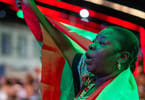Last Sunday night, a crude, homemade bomb killed a French teenager and injured 24 others in the Khan El Khalili, a popular, ancient Cairo bazaar. The bomb weighed one pound, was made of gunpowder and detonated by a washing machine timer. It was similar to the ones that ripped off hotel complexes in the Red Sea resort area from 2004 to 2006. The attack last Sunday came only three years after relative “calm” in Egypt.
Experts said it was the work of a small, previously unknown extremist group or individuals, with no connection whatsoever to the militants who waged war against the Egyptian state in the 1990s. The Egyptian Ministry of Interior said a number of suspects are being interrogated for the death of the French girl and the injured – ten Germans and three Saudis.
Speaking to eTN, Egyptian Tourism Minister Zoheir al Garannah condemned the attack. He said, “This phenomenon has spread around the world. It’s not the end of the world. But my greatest and most immediate concern was the welfare and safe return of the tourists. I don’t care much about the effect to the industry as the well-being of our guests at the end of the day.”
He added that the attack did not tarnish their tourism-exchange ties with France as a large group of French students was hurt in Khan el Khalili last Sunday. “We have very strong relations with France,” said Garannah who reported that Egypt had over 12.8 million guests and an 18 percent growth in arrivals in November over last year. There was, however, a slight unexpected dip of 2.8 percent in tourists totals since the recession started. Had it not been for the recession, he noted they would have received 1.2 million guests per month, on track with the 14 million arrivals Egypt would like to achieve by 2010/2011.
Last Sunday’s blast in the bazaar was not the first. Khan el Khalili had been targeted in the April 2005 explosion set off by a suicide bomber on motorcycle. He killed two tourists, including one American, and wounded eight at midday. This single attack was apparently motivated by anger over the Iraqi and Palestinian crises. This incident was followed by two more attacks in downtown Cairo’s Abdul-Munim Riyad and al-Sayyida Aisha Squares. Later, security officials blamed a 27-member cell, known as the Azhar cell behind the series of blasts. Hasan Ra’fat Bashandi, a young engineering student, was found to be the perpetrator of the marketplace suicide bombing. A clever student, he had good knowledge of computers and internet use. He sought religious information on the web and embraced many extremist ideas through his direct contact with extremist religious groups widespread in the slums, said the al Ahram. “Bashandi isolated himself from his society, family and neighbors, believing them all to be immoral. He even ordered his mother and sister not to shake hands with men, as he believed it to be adultery. Bashandi and his likes regard democracy, bank interests, tourism, television and movies as haram or unlawful according to Islam’s Shariah Law, said Al Sayid Yasin of the al Ahram.
Last Sunday’s explosion rounded up all the staff and guests of the Hussein hotel next to the blast site. They are now under police custody. The country’s mainstream Muslim Brotherhood has condemned the attacks, along with the Al-Gamaa al-Islamiya, a militant group involved in the 1981 assassination of former President Anwar Sadat that has since renounced violence. Gama’a Al Islamiya established in the 1970s, refused to join the Muslim Brotherhood, but decided to assassinate Sadat. In 1997, they reviewed their group concept namely Jihad or Holy War which included killing tourists.
After gunning down some officials, the head of the People’s Assembly and few ministers of interior, they realized their cause was not effective. They abandoned it. They turned to damaging the economy and national unity, thinking up a path of destruction up to the main foreign exchange earner –tourism. Sooner than later, they started to spread their wrath on tourism because they think the industry leads to moral corruption. They found out later they had murdered tourists who were safe-guarded by the government when entering Egypt. They immediately forbade harming guests. They realized tourism was not the only cause of moral disintegration in the country. There were drugs, usury, the movie industry. As soon as they identify their target, they would carry out their mission, then reject them – lacking in thorough understanding of the economic, political and social understanding of their country and repercussion of their action.
Last month, extremists got some flak from their own people. At the Islamic conference of the International Association for Azhar Graduates, the president of the Azhar University, Dr. al-Tayyib said that one of the reasons why Islam-West dialogue is not succeeding is the existence of some people who speak in the name of Islam and want to judge Western civilization according to an Islamic perspective, which is wrong. Al-Tayyib said that Muslims should not judge the comportment of others according to Shariah and the measures of halal and haram in Islam.
However, he added that Muslims should acknowledge the rights and freedom of the others “as long as they [the others] do not impose their perspectives on us,” said al-Tayyib adding that the prevailing voice in the Islamic world nowadays is that of fundamentalist Islam.
The huge financial potentials supporting the fundamentalist current make it the main voice of Islam to the extent that it mutes the moderate voice of Islam, said Al Dustur’s Ibrahim Al Tayyib. To that effect, Dr. Sayyid Tantawi, the grand imam of the Azhar discarded blind fundamentalism. He bemoaned the situation in Gaza and called on the world to support the ‘right path’. He also called on Palestinians to be united to achieve victory in January’s congregation.
Dr. Mahmoud Hamdi Zaqzuq, Egyptian minister of religious endowments, called on the West to give up its view of Islam as a source of terrorism, arguing that such a view is wrong and stands as an obstacle in the way of inter-religious dialogue. He said that terrorism is an international phenomenon that both the East and the West suffer from.
But Zaqzuq criticized the double standards of the West toward the different causes of the Middle East, citing the example of the current situation in Gaza. He further said that the West is igniting wars in different parts of the Islamic world under the pretext of spreading democracy and human rights, ignoring the fact that values emerge from inside and cannot be imposed on people. He said in closing that violence only results in more violence.
Whether the blast last Sunday was fueled by sentiments for Gaza and its refugees, we know that Egypt had recently opened its borders to accommodate the Palestinians again. How the bazaar bomber could contemplate on hurting innocent tourists after Egypt opens the Rafaah border with Gaza is beyond many and those who bite the hand that feeds them.
WHAT TO TAKE AWAY FROM THIS ARTICLE:
- I don't care much about the effect to the industry as the well-being of our guests at the end of the day.
- Experts said it was the work of a small, previously unknown extremist group or individuals, with no connection whatsoever to the militants who waged war against the Egyptian state in the 1990s.
- The Egyptian Ministry of Interior said a number of suspects are being interrogated for the death of the French girl and the injured –.






















